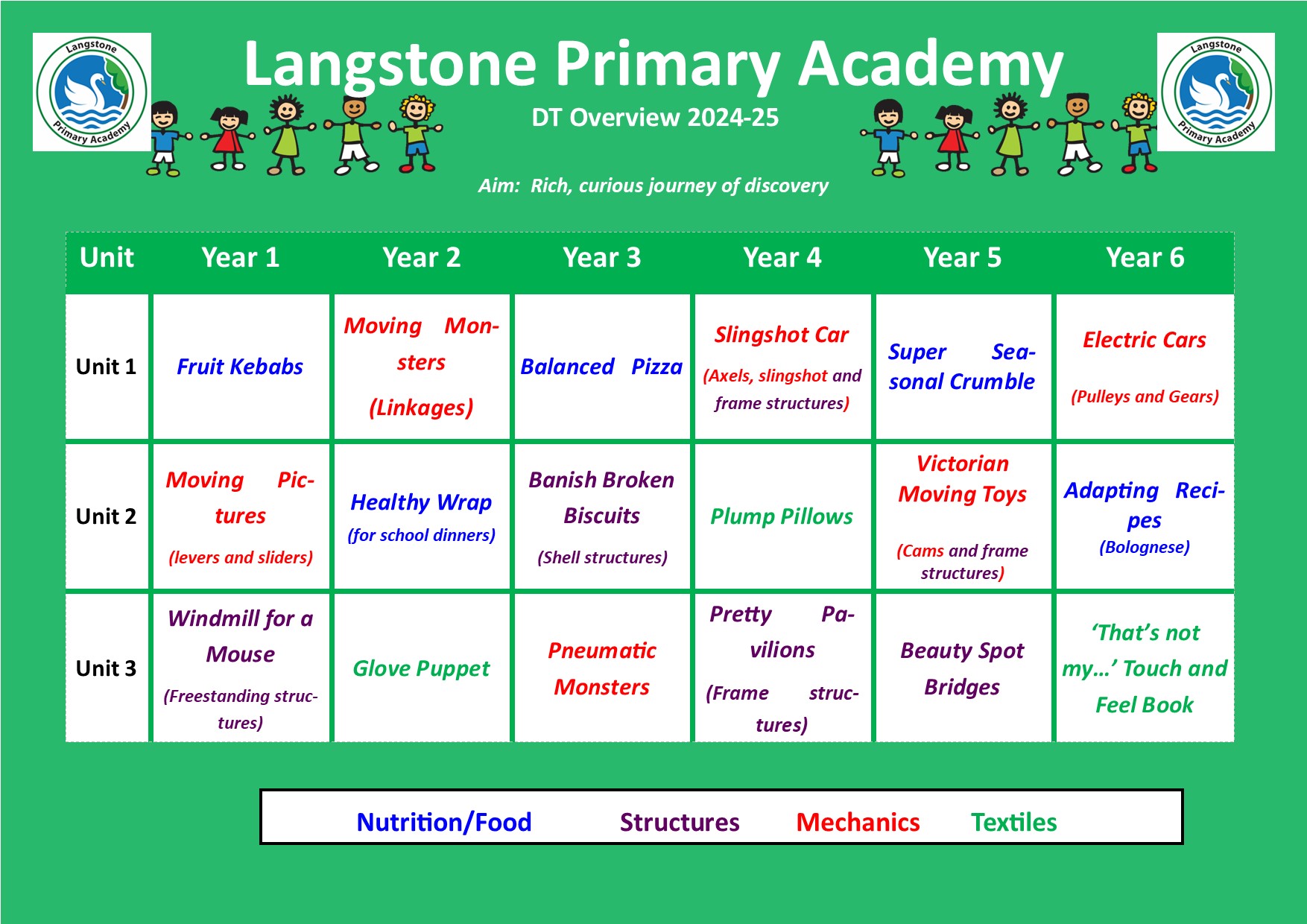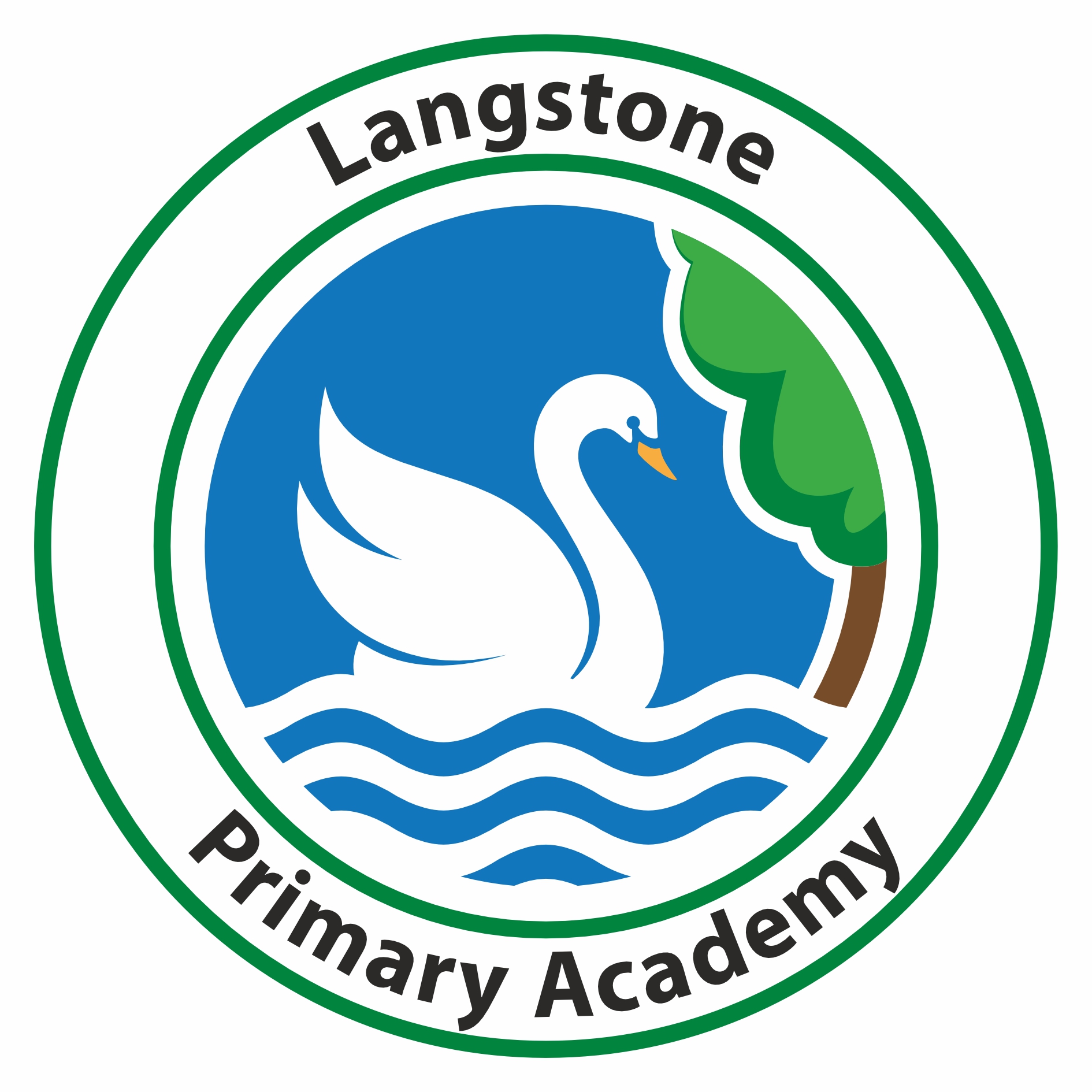Think, Learn, Be Excellent Together
Think, Learn, Be Excellent Together
Think, Learn, Be Excellent Together
Think, Learn, Be Excellent Together
DT
Intent
At Langstone Academy we want the children to draw on a range of knowledge, skills and understandings to solve a variety of real and relevant design problems. Children will innovate by seeking inspiration from past and present Design Technology whilst considering their own and others’ needs, wants and values in this ever changing world.
In order to achieve this, we will:
- Aim to provide exciting and relevant problems for the children to solve because this will not only provide a context to their learning but will inspire and motivate them to take risks and innovate.
- Ensure children will take part in the whole design process because this allows them to develop a range of creative, technical and practical skills useful for later in life.
- Aim to critique, evaluate and test their own and others’ works using the language of design technology because we have found that our children learn best through reflection and thinking when discussing with their peers.
By the end of EYFS, children will:
- Safely use and explore a variety of materials, tools and techniques, experimenting with colour, design, texture, form and function.
- Share their creations, explaining the process they have used.
- Use a range of small tools, including scissors, paintbrushes and cutlery.
By the end of KS1, children will:
- understand the design process where children will design, make and evaluate products created for themselves and others
- know different structures and how they can be made stronger, stiffer and more stable
- explore a range of different mechanisms
- understand the basic principles of a healthy diet alongside the understanding of where food comes from
By the end of KS2, children will:
- understand the process of design thinking and seeing design as a process of researching, making prototypes, refinements and ensuring products have a high quality finish which are fit for purpose.
- evaluate their own and other ideas against criteria.
- know some key events and individuals which have helped shape the products we use today
- build the skills needed to make high quality products:
- Food, structures/construction, textiles and mechanics.
- explore seasonality and healthy diets so this can be applied when choosing ingredients within their own dishes
- understand where and how a variety of ingredients are grown, reared, caught and processed.

